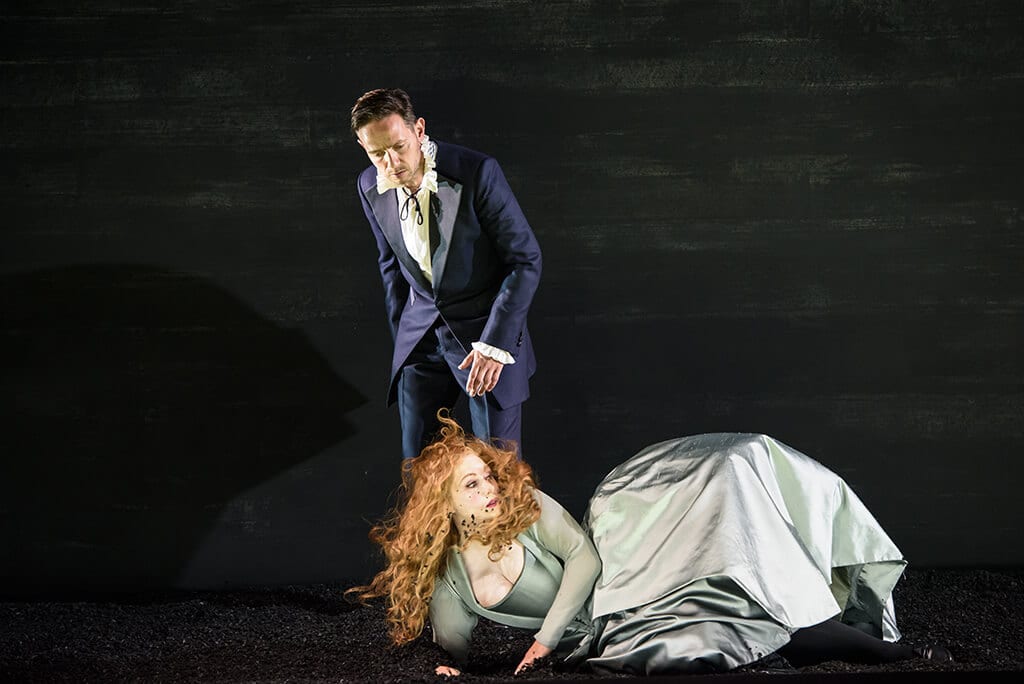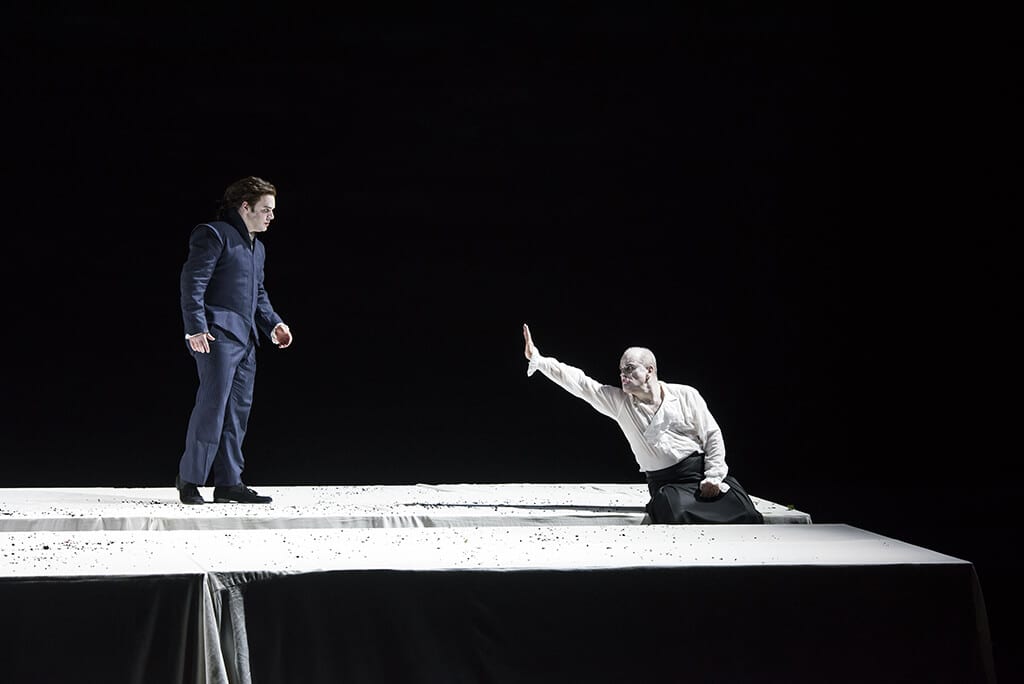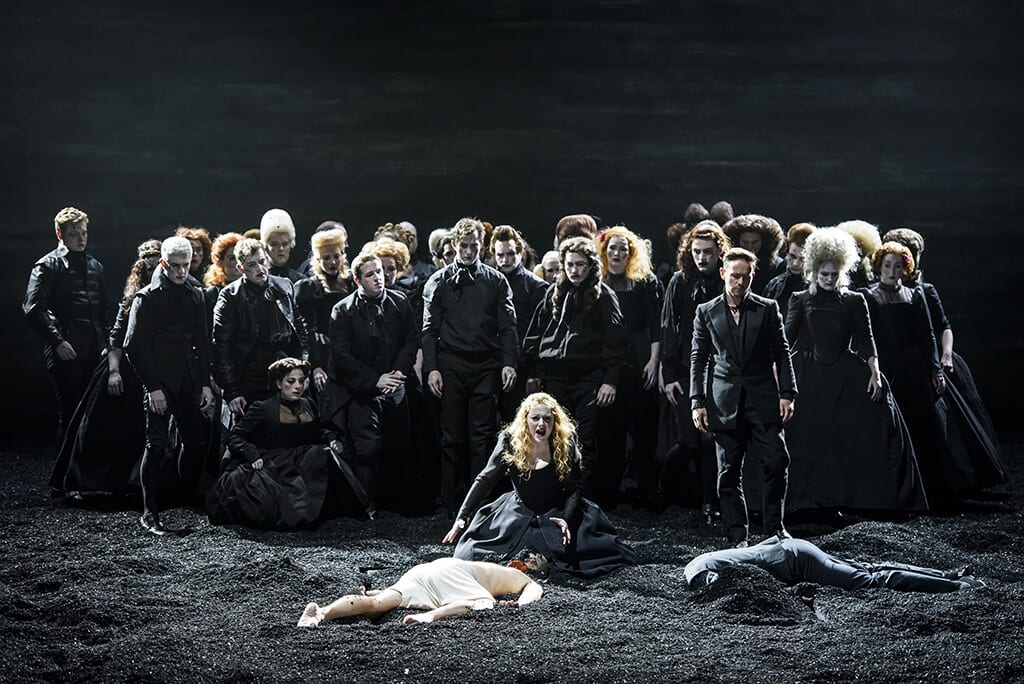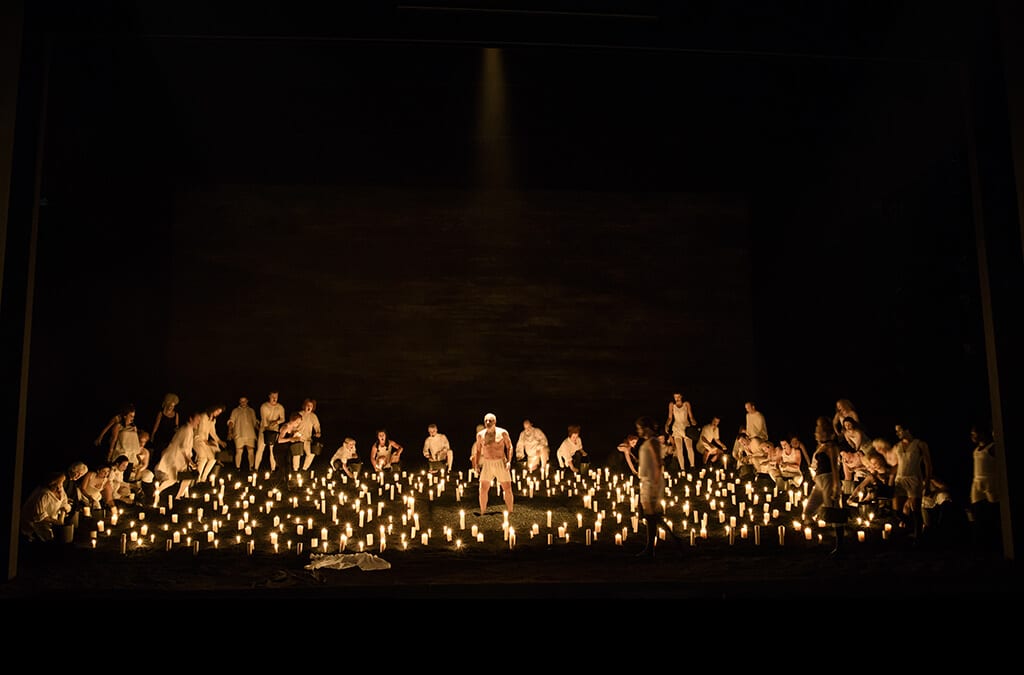Barrie Kosky, Australian opera and theatre director, debut at this Glyndebourne premiere of Handel’s Saul is an exhilarating experience.
The curtain opens on a Bacchanalian feast full of colour and gaiety; it stands in sharp contrast to David, who cuts a lone figure at the front of the stage with Goliath’s severed head, symbol of the blood and violence that will ultimately undo the vanity of the society that feasts in the background.
So begins Glyndebourne’s dramatic interpretation of Handel’s Saul, which navigates the difficult task of bringing religious oratorio to the modern operatic stage. Making Handel relevant is a notoriously difficult task, and all too often even his dramatic works are compromised by companies treating them as pieces of historical interest, or opportunities to explore an irrelevant conceptual whim that ignores much of what the original work sets out to achieve.
It is therefore a relief and a joy to report that Glyndebourne’s Saul bucks this trend to emerge a singular triumph. Director Barrie Kosky’s starting point is a minimalism that echoes Wieland Wagner’s Bayreuth, the stage dressed in a dark road of gravel upon which absurd, ostentatious design elements develop amongst the cast. The stagecraft employs elements of vaudeville reaching to the almost pantomime; but Kosky’s art balances this with subtly and respect to the work’s original form of unstaged oratorio, and at certain appropriate moments the cast can be seen simply standing, doing what they do best. Such a handling of the combination of ostentation and restraint can be traced right back to Handel’s inimitable style and the score itself: understanding of this nuance is key to making great operatic theatre, and it is why this Saul stands out from lesser attempts at the composer’s work.
The production is by no means perfect. Complete dramatic unity is not quite achieved, and in the second act the ideas seem to meander somewhat and come adrift in the aftermath of the war; it is not helped helped by a perhaps misadvised scene in which The Witch of Endor, channeling Tiresias, squeezes milk from a prosthetic breast upon Saul’s head for little dramaturgical gain. it is clear that Kosky understands how “the challenge…is to find some through-line so it doesn’t just become a ragbag of good numbers that are strung together with a little bit of drama.” But the true underlying dramatic heart of the work is thrashed out in the pit under the baton of Ivor Bolton, who deserves great credit for achieving the experience of a piece devoid of set-piece songs and giving Handel’s overarching musical structure a central role. This is a Saul as a great modern psychological drama which show’s Handel to be as psychologically relevant as any modern.
The singing is first rate and one gets the feeling that the cast believe wholeheartedly in what they are doing. Christopher Purves is as enthralling a performer as ever: he inhabits the role with a ferocious energy and it is something to see him alternatively him spitting with malice and cowering in fear as the king descends into madness at the hands of his lesser passions. His dramatic baritone stalks the stage with clarity and power and proves an effective turnstone of the piece as opera rather than oratorio. Iestyn Davies’ aloof and otherworldly counter-tenor works as a marvelous foil; he has a fullness and heroism that is rare in such a voice-type.
The triumph of this creative team is to ultimately transform Handel’s hallelujah’s from a historical relic into a modern celebration of God as love: of facing life in all it’s awfulness, and joy. You are advised to take the opportunity to experience this: it is a rare and precious thing.






